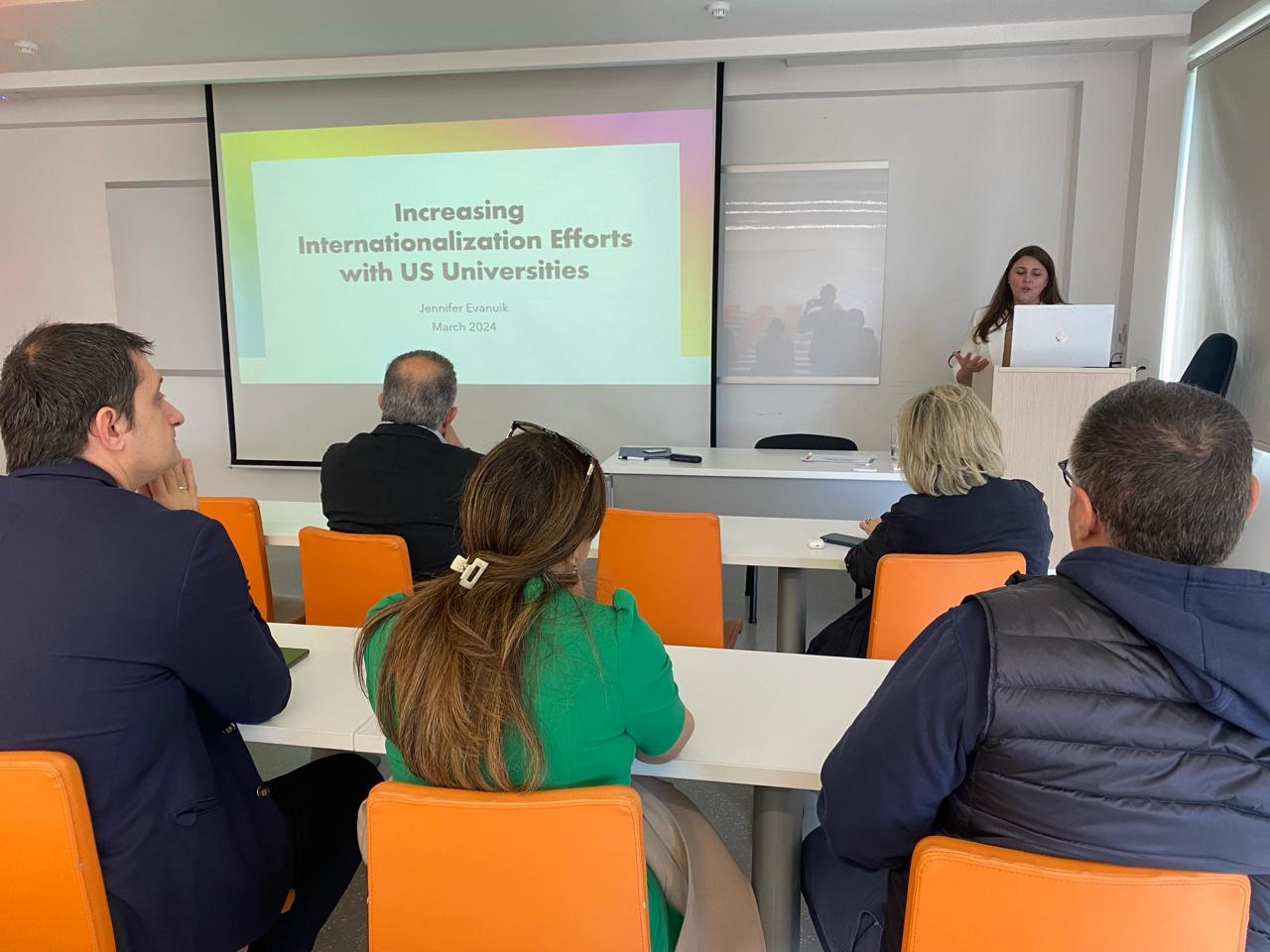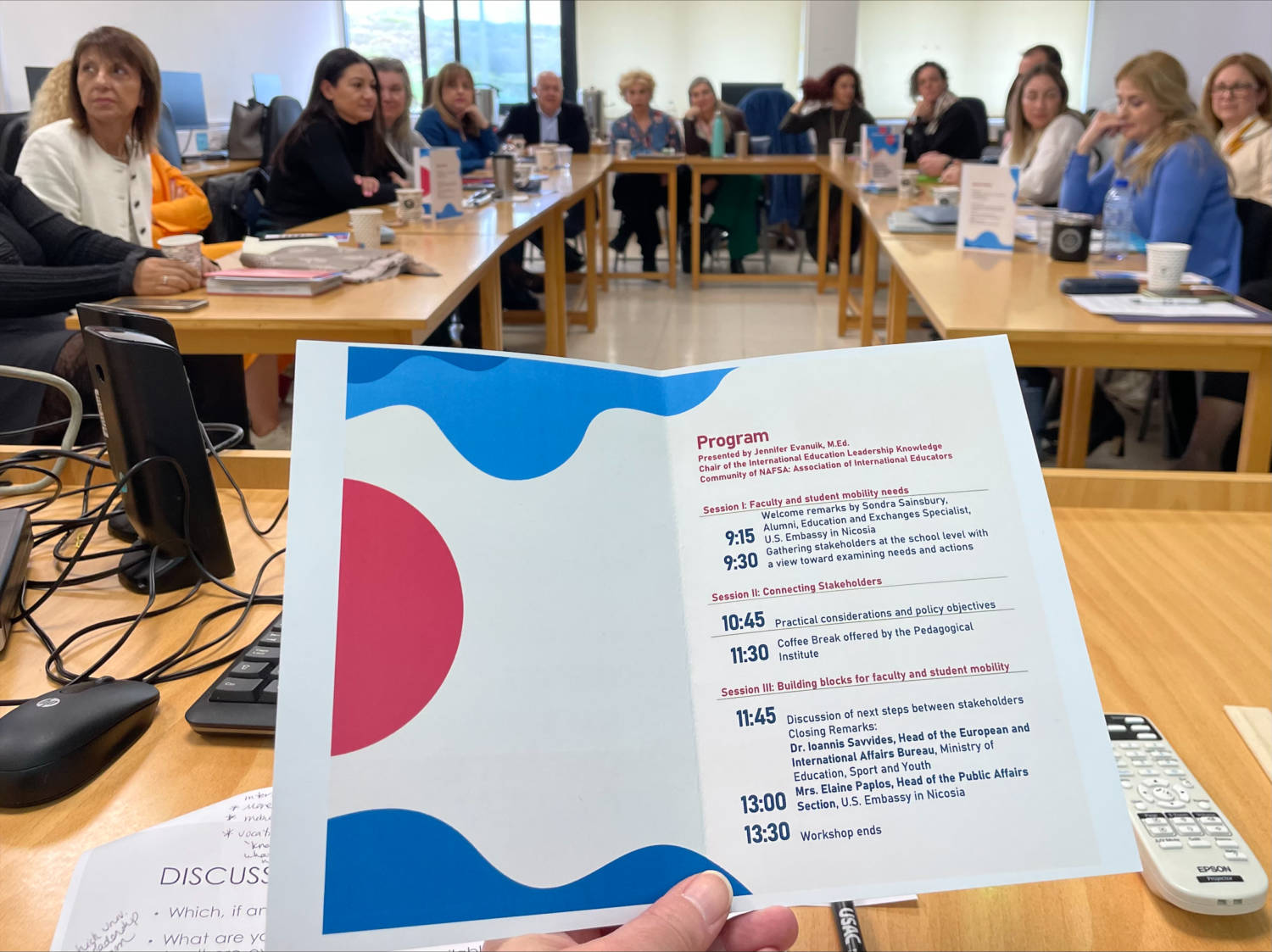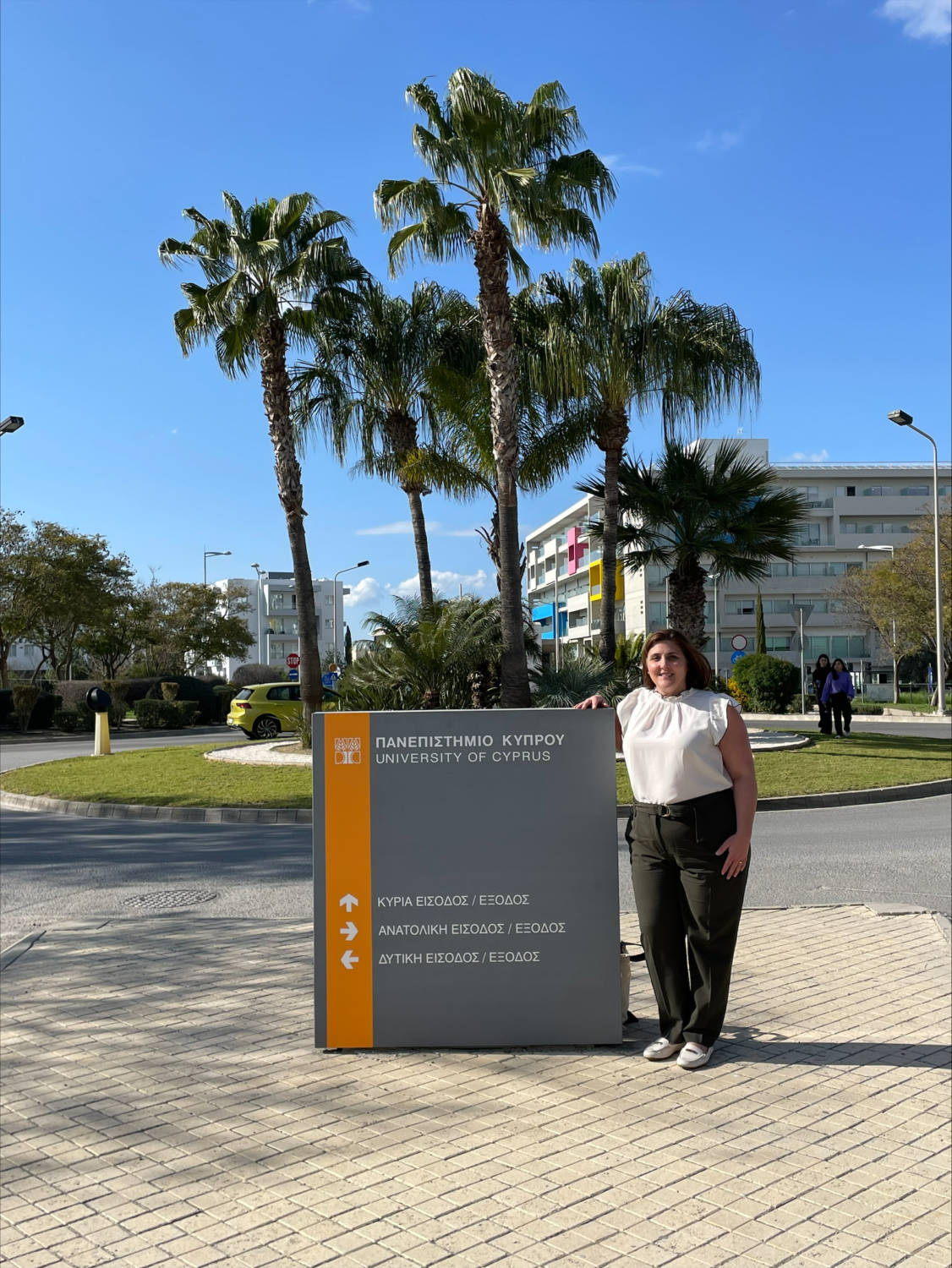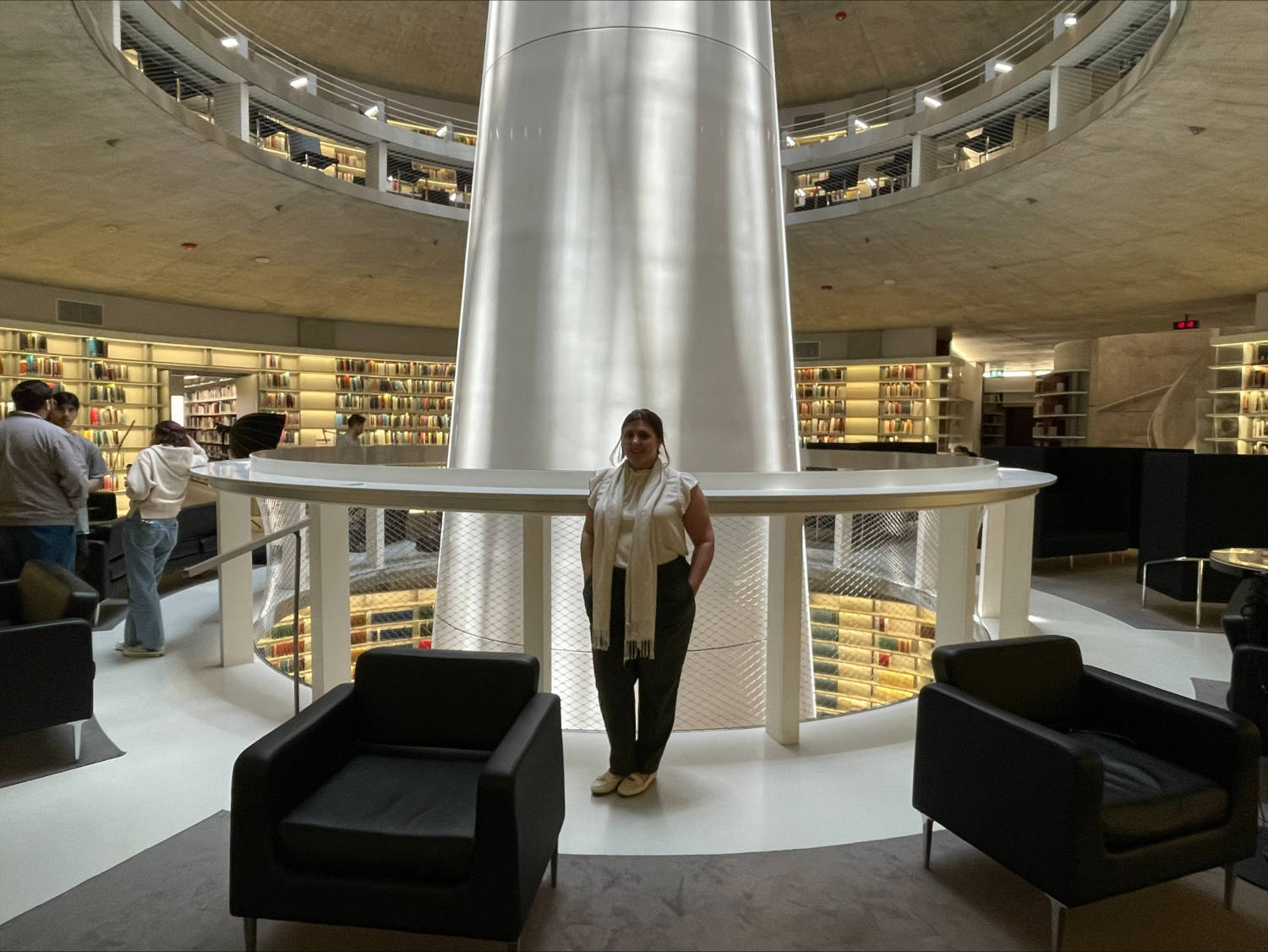Jennifer Evanuik, an American speaker and expert on capacity-building for academic mobility, travelled to Cyprus last week, as part of a joint effort by the U.S. Embassy in Athens and the U.S. Embassy in Nicosia.
The mission aims to strengthen educational ties between the United States, Cyprus, and Greece through initiatives such as joint degrees, short-term courses, as well as research and student exchange programmes, enhancing both faculty and student mobility.
Evanuik’s engagements with education stakeholders at the Cyprus University of Technology, European University Cyprus, the Pedagogical Institute, and the University of Cyprus highlighted the growing emphasis on international educational collaborations and the potential benefits they hold for enhancing global academic networks.
In an interview with in-cyprus and philenews, Evanuik talks about how building robust educational linkages can create opportunities for student and faculty mobility. With her expertise, she offered valuable insights into establishing direct-exchange partnerships that promise substantial benefits for both Cypriots and Americans.
Which universities did you visit in Cyprus?
During my week in Cyprus, I visited the Cyprus University of Technology, the European University Cyprus, and the University of Cyprus. During these visits, I met with Rectors, Vice-Rectors, Deans, staff, and faculty to discuss opportunities to increase collaboration with U.S. universities. I also had a speaking engagement with the Ministry of Education, Sport, and Youth hosted at the Pedagogical Institute.
What is approximately the number of American students studying in Cypriot universities?
According to the annual Open Doors report, 359 U.S. students studied abroad in Cyprus in 2022. (This is the most recent data available. Open Doors is an annual census conducted by the Institute for International Education to collect data about international students in the U.S. and U.S. students studying abroad.)
What are the most popular courses for Americans studying here?
There is no source that provides detailed data on the exact courses that individual U.S. students take while studying abroad, however, general trends indicate that the top fields of study are STEM (science, technology, engineering, and medicine/health professions), business, and social sciences.
What strengths do Cypriot higher educational institutions, and the country in general, have to attract American students and faculty?
Cypriot universities have many assets including high-quality and comprehensive fields of study, active research collaborations, student services, a focus on community impact, and an international outlook. Cyprus as a destination is attractive to American students and faculty for several reasons: widespread English, a welcoming atmosphere, a very safe environment, an important geographic location, very interesting geopolitical, historical, and cultural elements, and, of course, beautiful scenery and weather!
What opportunities exist for Cypriot universities to create connections with American institutions and what benefits can be created with these collaborations?
The United States has over 4,000 colleges and universities, and many of those are engaged to one degree or another in international programmes and collaborations. There is tremendous potential for U.S. and Cypriot universities to create institutional partnerships that promote student exchanges, short-term study abroad, and virtual exchanges, as well as faculty collaborations such as research, training, and curriculum development.
The benefits of internationalisation are myriad: enhanced educational opportunities for students on both sides; greater intercultural understanding and global awareness; diversification on each other’s campuses; faculty engagement and development; greater prestige in terms of university rankings; and increased opportunities for research funding.
What opportunities exist for Cypriot students and faculty to study or participate in programmes and fellowships in the United States?
There are opportunities for Cypriots through U.S.-government-sponsored programs such as the Fulbright Visiting Scholars Programme, the Fulbright EU Schuman Programme, and the Benjamin Franklin Transatlantic Fellows Programme. Beyond these limited government-sponsored programmes, most individual mobility occurs through institutional partnerships between individual universities in the U.S. and in Cyprus. These can include opportunities for full-time studies in the U.S., exchange, or short-term studies abroad, dual degrees, visiting professorships and visiting researcher placements.









